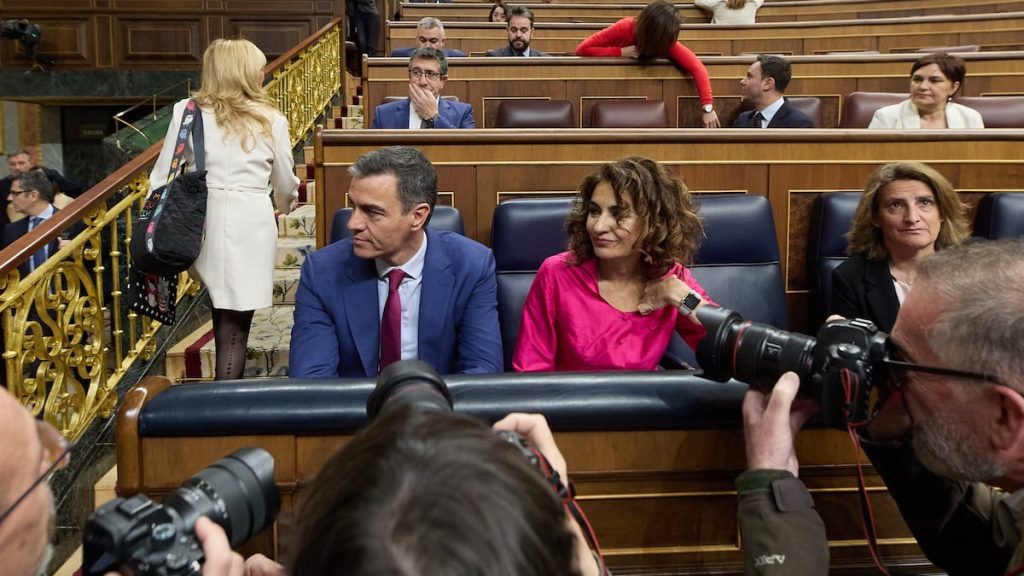Spain is currently facing a period of uncertainty that will be resolved on Monday when Pedro Sánchez announces the result of his reflection on whether it is worth continuing as president of the government. Accustomed to living politics as a high-risk exercise, the leader of the PSOE will make the most complex decision of his already long and intense career, with unpredictable consequences. The surprising letter to the public in which he revealed that he was canceling his agenda to decide whether to resign came after it was revealed that a court had opened an investigation into his wife, Begoña Gómez, for influence peddling. The complaint was based on digital newspaper clippings that included notorious falsehoods, and was filed by Manos Limpias, an ultra organization with a history of presenting false complaints.
The suspicious origin of the complainant, who has been investigated for extortion in several cases, and the poor quality of the complaint did not deter Judge Juan Carlos Peinado from opening proceedings, leading some to believe that a sector of the judiciary is playing dirty against certain political options. This decision raises questions about the democratic quality of a country, as judges, who exercise constitutional power, cannot remain beyond public scrutiny. Pedro Sánchez claims in his letter that the campaign against his wife, in which he accuses the right (the PP) and the far right (Vox) of complicity, has led him to take this break, causing distress among his supporters and increased polarization in society.
It is difficult to believe that there is a political strategy behind Sánchez’s decision (even his close circle was unaware of his intentions until the last moment), and it seems more likely that it is a result of personal and family erosion. This sudden decision has caught almost everyone off guard because Sánchez has always been resilient, overcoming challenges such as winning the Socialist primaries in 2017, winning a motion of no confidence the following year with a diverse alliance, and surviving contradictions such as the amnesty for those involved in the Catalan independence process.
While other prime ministers have faced personal attacks before, the current situation is exacerbated by several factors. First, the far-right party Vox’s verbal violence drags the mainstream PP into an inappropriate escalation, secondly, the proliferation of digital newspapers that spread misinformation, and thirdly, the impact of social media in spreading hate at an unprecedented speed. Sánchez should have handled the personal impact of the attacks more discreetly without needing to share his doubts with the public. The options on Monday do not seem optimal; if he resigns, it poses risks of instability in the government and within his party, if he stays, the campaign intensifies, making him vulnerable.
The unexpected blow of Sánchez’s decision has further weakened a government that was already walking a fine line. The future of his leadership and the stability of Spain’s political landscape hang in the balance, as the country grapples with uncertainty and a growing sense of discontent. It remains to be seen what decision Sánchez will make on Monday, and how it will impact the future of Spain and the political landscape. Subscribe to continue reading and stay informed about the developments in Spain.


